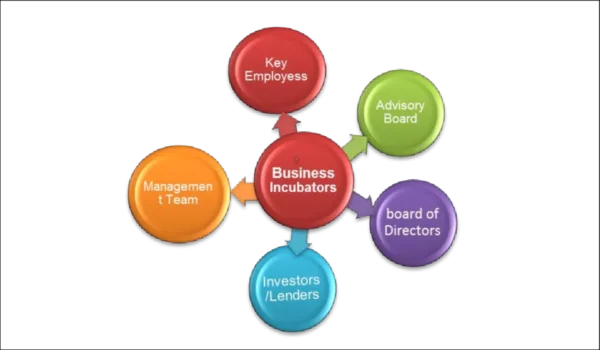If you’re an entrepreneur looking to take your startup to the next level, you may have heard of business accelerators. These programs offer a variety of resources and support to help startups scale quickly and succeed in their industry. But what exactly is a business accelerator, and how can it benefit your company?

Mainly, business accelerators are programs designed to help startups grow and succeed. Typically, an accelerator will provide a combination of mentorship, resources, and funding to help startups achieve their goals. This can include access to industry experts, networking opportunities, and even office space or equipment. By participating in an accelerator program, startups can accelerate their growth and increase their chances of success.
So why should you consider joining a business accelerator? For starters, these programs can provide valuable resources and support that can help you overcome common startup challenges. Additionally, accelerators often have strong connections in the industry, which can help you access new markets or connect with potential investors. Ultimately, participating in a business accelerator can help you take your startup to the next level and achieve your goals more quickly.
Types of Business Accelerators
When it comes to business accelerators, there are several different types that you can choose from. Each type has its own unique focus and benefits. In this section, we will explore three of the most common types of business accelerators: corporate accelerators, seed accelerators, and social impact accelerators.
Corporate Accelerators
Corporate accelerators are typically run by large corporations that are looking to invest in and support startups that are aligned with their strategic goals. These accelerators offer a range of benefits to startups, including access to mentorship, funding, and resources. In addition, corporate accelerators often provide startups with the opportunity to work closely with the sponsoring corporation, which can lead to valuable partnerships and collaborations.
Seed Accelerators

Seed accelerators are designed to help early-stage startups get off the ground. These accelerators typically offer a short-term program that provides startups with mentorship, funding, and resources. Seed accelerators are a great option for startups that are in the ideation or early development phase, as they can help provide the support and guidance needed to turn an idea into a viable business.
Social Impact Accelerators
Social impact accelerators are focused on supporting startups that are working to create positive social or environmental change. These accelerators typically offer a range of benefits, including mentorship, funding, and resources, as well as access to a network of like-minded individuals and organizations. Social impact accelerators are a great option for startups that are looking to make a difference in the world while also building a successful business.
Overall, there are many different types of business accelerators to choose from. By understanding the different options available, you can choose the accelerator that is best suited to your needs and goals. Whether you are looking for mentorship, funding, or access to resources, there is an accelerator out there that can help you achieve your business objectives.
Core Components of Accelerators

Accelerators are programs designed to help early-stage companies grow and succeed. These programs typically provide a range of resources and support, including mentorship, coaching, capital, networking opportunities, and educational workshops. Here are the core components of accelerators:
Mentorship and Coaching
Mentorship and coaching are key components of accelerator programs. Mentors are experienced entrepreneurs, investors, or industry experts who provide guidance and support to startups. They help entrepreneurs refine their business plans, develop go-to-market strategies, and navigate the challenges of building a successful company. Coaching, on the other hand, focuses on helping founders develop their leadership skills and overcome personal and professional obstacles.
Capital and Investment
Access to capital is critical for startups to grow and scale. Accelerators provide funding opportunities, including seed funding, venture capital, and angel investment. These programs also offer introductions to investors and help startups prepare for fundraising pitches.
Networking Opportunities
Networking is essential for startups to build relationships with potential customers, partners, and investors. Accelerators provide opportunities for startups to connect with industry leaders, mentors, and other entrepreneurs. These programs also offer access to events, conferences, and other networking opportunities.
Educational Workshops
Accelerators offer educational workshops to help startups develop the skills and knowledge they need to succeed. These workshops cover a range of topics, including product development, marketing and sales, finance, and legal issues. Workshops are typically led by experienced entrepreneurs, investors, or industry experts.
In summary, accelerators provide a range of resources and support to help early-stage companies grow and succeed. The core components of accelerators include mentorship and coaching, capital and investment, networking opportunities, and educational workshops.
Selection Process and Criteria

When it comes to selecting startups for a business accelerator program, the process and criteria can vary depending on the accelerator. However, most business accelerators follow a similar selection process that involves several stages.
Application Requirements
The first step in the selection process is usually submitting an application. The application requirements can vary but typically include basic information about the startup, its founders, and its product or service. Some accelerators may also require a business plan or pitch deck.
Pitching Events
After the initial application, some accelerators may hold pitching events where startups can present their business ideas to a panel of judges. These events can be in-person or virtual and provide an opportunity for startups to showcase their products or services and receive feedback.
Cohort Selection
Based on the application and pitching events, the accelerator will then select a cohort of startups to participate in the program. The cohort size can vary but is typically around 10-20 startups. The selection criteria can include factors such as the startup’s potential for growth, the strength of the team, and the viability of the product or service.
Once the cohort is selected, the accelerator program begins, typically lasting for several months. During this time, startups receive mentorship, resources, and support to help them grow and scale their businesses.
Overall, the selection process and criteria for a business accelerator program can vary, but the goal is always the same: to identify and support promising startups with the potential for growth and success and make a return on investment.
Program Structure and Duration

Business accelerator programs are designed to provide startups with the resources they need to grow and succeed. These programs typically last between three and six months, with a structured curriculum that includes intensive bootcamps, demo days, and post-acceleration support.
Intensive Bootcamps
Intensive bootcamps are a key component of business accelerator programs. These bootcamps typically last for several weeks and provide startups with a crash course in entrepreneurship. During this time, startups will learn about topics such as customer discovery, market research, product development, and fundraising. They will also have the opportunity to work closely with mentors and industry experts who can provide valuable feedback and guidance.
Demo Days
Demo days are another important aspect of business accelerator programs. These events provide startups with the opportunity to showcase their products and services to potential investors and customers. Startups will typically spend several weeks preparing for demo day, refining their pitch and getting feedback from mentors and advisors. On demo day, startups will have the chance to present their business to a panel of judges and an audience of investors and industry experts.
Post-Acceleration Support
After the accelerator program is over, startups will continue to receive support from the program’s organizers and mentors. This post-acceleration support may include access to co-working spaces, continued mentorship, and introductions to potential investors and customers. The goal of this support is to help startups continue to grow and succeed even after the program has ended.
Overall, business accelerator programs provide startups with a structured and supportive environment in which to grow their businesses. By participating in these programs, startups can gain valuable knowledge, experience, and connections that can help them succeed in the competitive world of entrepreneurship.
Impact of Accelerators on Startups

Accelerators have become increasingly popular in the startup world as a way to provide guidance, resources, and connections to help startups grow and succeed. Here are some ways that accelerators can impact startups:
Success Stories
Accelerators often have a track record of success stories, which can be inspiring and motivating for startups. Seeing that other startups have gone through the program and achieved success can give startups the confidence to push forward and work hard.
Growth Metrics
Accelerators can provide startups with access to resources and mentors that can help them grow quickly. This can include help with product development, marketing, and fundraising. Accelerators may also provide startups with access to investors, which can help them raise money to continue growing.
Alumni Networks
Accelerators often have large alumni networks, which can be valuable for startups. These networks can provide startups with connections to potential customers, investors, and mentors. Alumni networks can also provide startups with a sense of community and support, which can be helpful during the ups and downs of startup life.
Overall, accelerators can provide startups with valuable resources and connections that can help them grow and succeed. However, it’s important for startups to carefully consider whether an accelerator is the right fit for them before applying.
Challenges and Criticisms

Accelerator Saturation
One of the major criticisms of business accelerators is the increasing number of accelerator programs available. This has resulted in accelerator saturation in many regions, with a corresponding decrease in the quality of programs being offered. The sheer number of programs available has made it difficult for startups to choose the right accelerator program that will best fit their needs.
Quality vs. Quantity
Another challenge facing business accelerators is the balance between quality and quantity. Some accelerators focus on accepting as many startups as possible, which can lead to a dilution of resources and mentorship. On the other hand, some accelerators have stringent selection processes and only accept a limited number of startups, which can limit the diversity of ideas and businesses being supported.
Dependency Risks
A common criticism of business accelerators is the potential for startups to become too dependent on the accelerator program. While accelerators provide valuable resources and mentorship, startups must also learn to operate independently and develop their own networks and strategies. Over-reliance on an accelerator program can hinder a startup’s long-term growth and sustainability.
Hence, while business accelerators offer valuable resources and support for startups, they also face several challenges and criticisms. These challenges must be addressed in order to ensure that accelerator programs continue to provide meaningful benefits for startups in the long term.
Future Trends in Business Acceleration
Technological Advancements

As technology continues to advance, business accelerators will need to adapt to keep up with the changing landscape. One trend we can expect to see is an increased focus on artificial intelligence (AI) and machine learning (ML) technologies. These technologies are already being used to help identify promising startups and to provide mentorship and guidance to entrepreneurs.
Another trend we can expect to see is the use of virtual reality (VR) and augmented reality (AR) technologies in the accelerator process. These technologies can be used to simulate real-world business scenarios and provide entrepreneurs with hands-on experience before they launch their businesses.
Global Expansion
Business accelerators are no longer limited to specific geographic regions. In the future, we can expect to see more accelerators expanding globally and partnering with other accelerators around the world. This will provide entrepreneurs with greater access to resources and mentorship from a wider range of experts.
Another trend we can expect to see is an increased focus on emerging markets. As more and more entrepreneurs from developing countries enter the startup scene, accelerators will need to adapt to meet their unique needs and challenges.
Specialized Accelerators
In addition to traditional business accelerators, we can expect to see more specialized accelerators in the future. These accelerators will focus on specific industries or technologies, such as healthcare, fintech, or blockchain. By providing tailored mentorship and resources to entrepreneurs in these fields, specialized accelerators can help drive innovation and growth in these areas.
Overall, the future of business acceleration looks bright, with new technologies and global partnerships opening up new opportunities for entrepreneurs around the world. As the startup landscape continues to evolve, business accelerators will need to stay agile and adapt to meet the changing needs of entrepreneurs.






